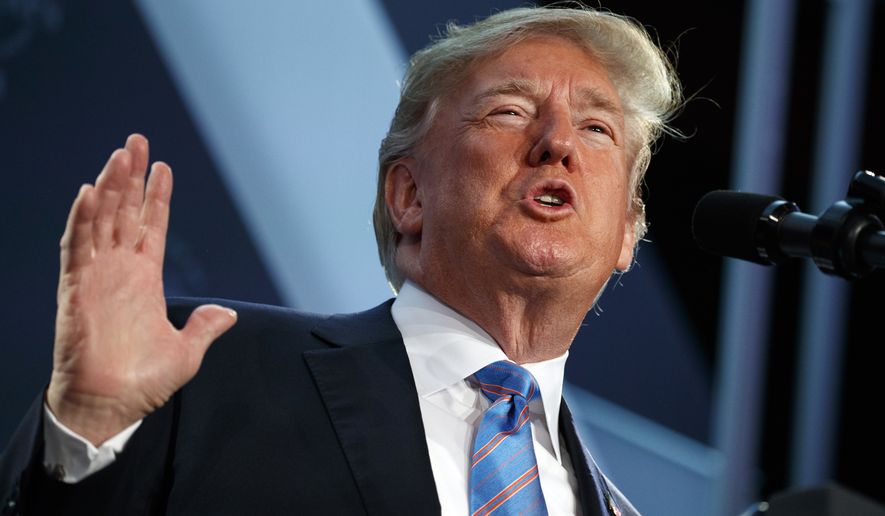President Trump’s pick to lead U.S. forces in Afghanistan said Pakistan is continuing to finance and supports elements of the insurgency fighting Kabul even while publicly voicing support for U.S.-backed talks to forge a peace deal with the Taliban and end the 17-year conflict.
Lt. Gen. Austin “Scott” Miller, who previously ran the secretive Joint Special Operations Command (JSOC) before being pegged for the U.S. military’s top spot in Afghanistan, told a Senate Armed Services Committee confirmation hearing Tuesday he still had “high expectations” for Islamabad in ending the Afghan war, but that better cooperation and coordination were needed.
“It’s obviously a very tough neighborhood with some tough neighbors,” Gen. Miller told lawmakers. “Pakistan must be part of the solution, and we should have high expectations that they are part of the solution.”
Mr. Trump’s new South Asia strategy took Islamabad to task for its support of groups such as the Haqqani network and the Pakistani wing of the Taliban. Gen. Miller said some of Pakistan’s actions were “contradictory” to its public calls for peace in Afghanistan. Currently, there are approximately 16,000 U.S. personnel serving in Afghanistan.
Gen. Miller’s comments came days after Mullah Fazlullah, the reputed head of the Pakistani Taliban, was reportedly killed in a U.S. drone strike in eastern Afghanistan’s Kunar Province. The longtime terror chieftain was blamed for orchestrating that 2014 Pakistani Army school attack in Peshawar that left nearly 150 people dead, including 132 children, among other incidents.
The Trump administration has relaxed its rules of engagement in Afghanistan in response to growing threats from the Taliban and other insurgent groups such as Islamic State. That shift, coupled with the addition of 3,000 U.S. troops and additional American firepower into the country, was the linchpin of Mr. Trump’s strategy unveiled last August.
Gen. Miller will be the first U.S. military commander selected by the Pentagon since Mr. Trump’s revised the battle plan.
Efforts as a negotiated solution were bolstered in recent weeks as the Taliban and Afghan government forces observed a brief, unprecedented cease-fire coinciding with the Muslim holy month of Ramadan. While only lasting several days, the lull in fighting has raised hopes in Kabul and Washington that a corner had been turned in the Afghan war.
Under the cease-fire, Afghan forces refrained from carrying out offensive operations against Taliban targets while continuing combat operations against the Islamic State’s Afghan cell and al Qaeda elements still active in the country.
But after 17 years of conflict, Gen. Miller on Tuesday wasn’t ready to proclaim any corners had been turned in Afghanistan.
“I can’t guarantee you a timeline or an end date,” he said. “But I go back to the vital interests of national security for America. I know this [war] is having a [negative] effect on elements that would attack us.”
Sen. Elizabeth Warren, Massachusetts Democrat, criticized the administration’s unwillingness to commit to a firm timeline for ending the war.
I’m afraid we’re asking our military to perform an impossible task. Our military cannot and should not be in Afghanistan forever,” she said.
Gen. Miller warned that a rapid drawdown of U.S. or allied forces would likely produce the same chaotic situation that engulfed Iraq after the 2011 American military pull-out there, clearing the way for the rise of Islamic State in Iraq and Syria.
“With a precipitous and disorderly withdrawal, we would see negative effects on U.S. national security,” the general said. “I would be concerned about ISIS and al-Qaida’s ability to emerge” in the power vacuum left behind.
• Carlo Muñoz can be reached at cmunoz@washingtontimes.com.




Please read our comment policy before commenting.